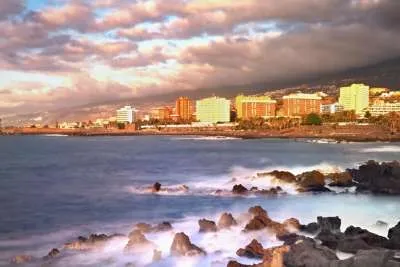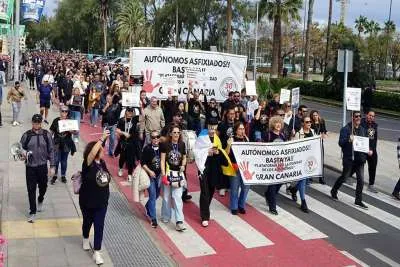Trans and LGBTIQA+ organisations cut ties with Arona Council over ‘Shameful Pact’ with Vox
- 30-01-2025
- Tenerife
- Canarian Weekly
- Photo Credit: LBB
Several Trans and LGBTIQA+ organisations in Tenerife have announced the complete cutting of ties and relations with Arona’s municipal government following a controversial agreement allowing Vox to enter a local government in Tenerife for the first time.
The pact, formed with Coalición Canaria (CC) and the Partido Popular (PP), has been described by activists as a "shameful deal" that betrays women, LGBTIQA+ individuals, and migrants.
The agreement has sparked criticism, particularly towards Arona’s mayor, Fátima Lemes, who previously assured that Vox would not be granted ideological influence in governance.
However, activists argue that the far-right party will now oversee key strategic sectors such as culture, tourism, and employment, which they fear could lead to the implementation of sexist, racist, and anti-LGBTIQA+ policies.
Criticism of Coalición Canaria’s U-Turn
The activist groups have also condemned Coalición Canaria, accusing the party of abandoning its previous commitment to never govern alongside the far right. They claim the CC has become a direct accomplice to ultra-conservative policies that endanger vulnerable communities.
Particular outrage has been directed at Rosa Dávila, the President of the Tenerife Cabildo (CC), who justified the agreement as a means of achieving political stability in Arona.
Activists dismissed this reasoning, pointing out that even with Vox's inclusion, the coalition lacks an absolute majority, meaning the government remains unstable while shifting further to the right. They argue that, as a leader responsible for equality and diversity policies, Dávila should be "held to a higher standard" in defending human rights.
Refusal to Collaborate with Far-Right Leadership
The activist organisations, including Diversas, Libertrans, Caminar Intersex, and Aperttura, have declared they will never engage institutionally with an administration that includes Vox, a party they accuse of:
- Denying the existence of gender-based violence
- Refusing to recognise trans women as women
- Opposing same-sex marriage and adoption rights
- Dismissing LGBTIQA+ organisations as mere "scams"
They insist that this agreement represents a "historic betrayal" of women, the LGBTIQA+ community, and migrants, vowing to maintain a principled stance against any public institution that allows the far right into government or relies on its support for political majorities.
Call for Public Resistance
Activists have made a public appeal to citizens to reject the agreement and have urged other municipal groups, including PSOE, Más por Arona, and Nueva Canarias, to take a stand against it. They caution that failure to act would make them complicit in policies that historically harm marginalised communities.
This political development marks a significant shift in local governance in the south of Tenerife, with tensions running high over the involvement of the far right in municipal affairs. The situation is likely to spark further debate over the future of equality and diversity policies in the region.
Other articles that may interest you...
Trending
Most Read Articles
Featured Videos
TributoFest: Michael Buble promo 14.02.2026
- 30-01-2026
TEAs 2025 Highlights
- 17-11-2025
































































